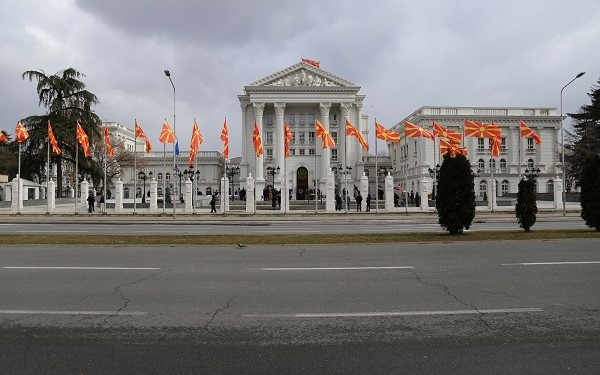Following several days of negotiations, an agreement was reached late Monday that the minimum wage be increased from the current Mden 15,200 to Mden 18,000. The increase is to take effect as of March, i.e. around 80,000 workers in the country will get a minimum wage of EUR 300 already in April. This has met the trade unions’ demand, who insisted that the minimum wage be immediately increased to Mden 18,000, pointing out it was an existential need of the workers at a time when life expenses are higher.
The increase of the minimum wage will be supported by the state, which will subsidize the part of the contributions and for this EUR 16 million will be allocated from the budget by the end of the year. “As of March, 80,000 of our workers, our fellow citizens, from various industries will receive a wage of at least Mden 18,000. This amount is an increase in the net wage of these workers by about EUR 45 per month.
The increase of the minimum wage to Mden 18,000, which will be paid to workers starting early April, is a measure that largely includes employees in micro and small enterprises, trade, manufacturing and other important industries in the country,” Prime Minister Dimitar Kovachevski said after Monday’s session of the Economic and Social Council. In addition, criteria to align minimum wage are also undergoing change, i.e. it will be set as 50 percent of the average wage increase and 50 percent of the life index percentage, with an additional condition that the share of the minimum wage in the average wage must be over 50 percent.
“We got a new methodology – 50 percent of the average wage growth and 50 percent of the cost of living, while in the methodology we left out the part in terms of the GDP which led to significant negative effects in the past, knowing that last year it was minus 0.7 percent and we failed to adjust the minimum wage to a level that’s dignified for workers,” Federation of Trade Unions (SSM) President Darko Dimovski said Monday.
Trade unions hope the minimum wage growth will positively affect the growth of the rest of the wages in the country, i.e. that Article 8 of the Law on Minimum Wage will be respected. Employers expect greater productivity from the workers, and analyses on repercussions on the work will follow.
“This is a new decision for us, with new methodologies and a new approach. For that reason we’ll need to additionally consult our membership and give our position in terms of repercussions on work. As SSM promised, I expect they’ll keep to their word that the workers satisfied with the minimum wage will contribute to an increase in productivity,” President of the Organization of Employees, Vladanka Trajkoska, said.
Deputy PM for Economic Affairs Fatmir Bytyqi, who was part of the negotiations with the trade unions and the workers, also positively assessed the minimum wage increase. According to him, this is a solidarity solution that meets the needs of both the citizens and the businesses.

















